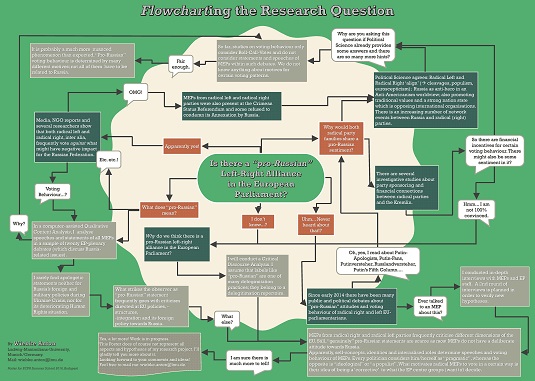Wiebke Anton, M.A.
Research Assistant and Doctoral Student
Research Project - Ongoing
Paradoxical Alliances? Disentangling the Debate on 'pro-Russian' Radical Parties in the European Parliament
Since the events in Ukraine which started in the winter of 2013, public and political debates on Russia have been more than ever marked by bias and controversy.
It seems that a considerable group of politicians within the European Parliament (EP) is apologetic towards or empathizing with the Russian Federation and its policies.They are suspected of serving Russia’s interests on the evidence of party donations, personal networks and voting behaviour in the EP. Those politicians (MEPs) mainly belong to radical party families. Researchers, NGOs and media therefore interpret a phenomenon called "pro-Russian alliance" between radical left and radical right parties.
Is that really the whole story?
This dissertation illustrates which attitudes radical parties promote towards Russia and in what manner they do so. It asks whether West European radical parties share positive sentiments, attitudes towards the Russian Federation and if they qualify as "pro-Russian".
Taking methodological and conceptional deficits of recent publications into account, the starting point of this study is that inferring "pro-Russian" attitudes from the analysis of vote counts is a fallacy. Employing a discourse approach in a broader selection of debates, this thesis offers an alternative perspective on EP plenary debates on the Russian Federation. The main aim is to disentangle and look beyond public and political debates on positive sentiment of radical parties about the Russian Federation.
This Criticial Discourse Study analyses EP plenary debates about the Russian Federation between 2009 and late 2015. It includes In-Depth Interviews with MEPs and EP staff. Statements of MEPs show that one cannot generalize radical parties’ affinity to Russia. In most cases, voting behaviour is not linked to affirmative or apologetic statements, the latter not being linked to Russia as such. Apparently, other factors serve as coordinates to map attitudes towards the Russian Federation:
Politicans are driven by many different motives to argue or vote in favour of an output which the public considers as “pro-Russian”. How parties vote is rather determined by the self-concepts, identities and internalized roles of politicians as well as strategic calculations.
Illustrating that MEPs and the public manoeuvre in a discourse pattern which dichotomises “the good pro-European” and “the bad pro-Russian” politician, this Critical Discourse Analysis shows that "pro-Russian" is a fuzzy term that is being used to delegitimise populist newcomer and radical parties within the EP. I therefore argue that discussing Russia is first and foremost a proxy for the conflict
between European Parliament centre establishment parties and (Eurosceptic) radical (newcomer) parties.
This Flowchart visualizes the progress and different aspects of Wiebke's research project.


